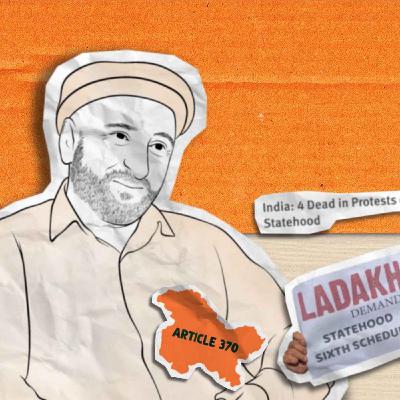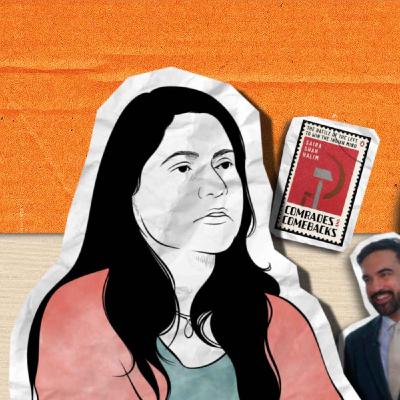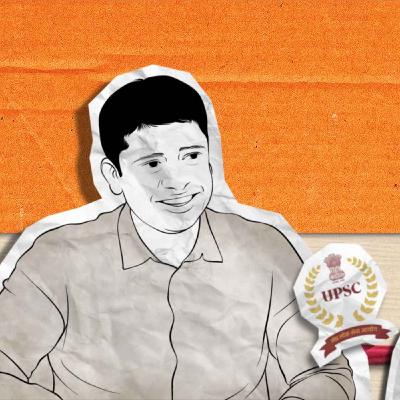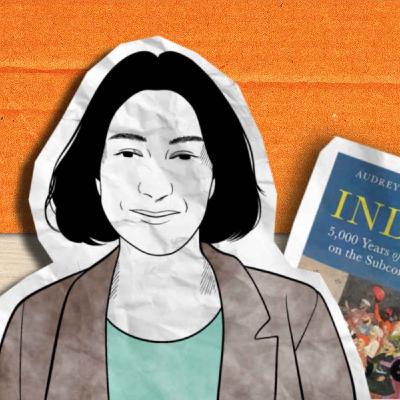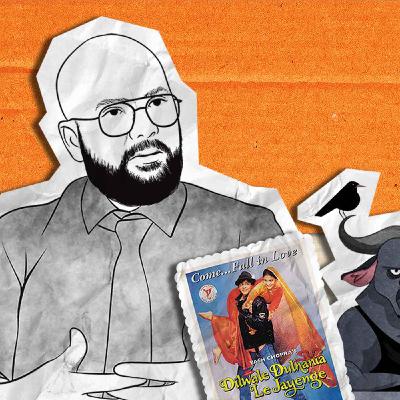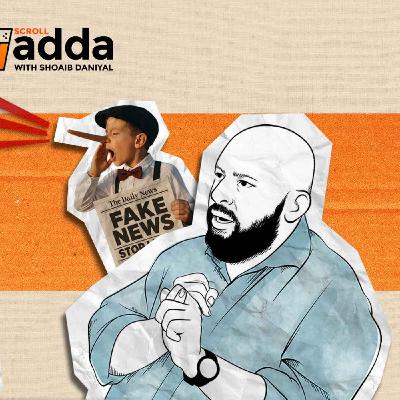Discover Scroll Adda
Scroll Adda

Scroll Adda
Author: Scroll.in
Subscribed: 9Played: 147Subscribe
Share
© SCNS PRIVATE LIMITED
Description
An interview podcast with newsmakers from around India and the world, spanning politics, culture, food, and the economy.
Hosted on Acast. See acast.com/privacy for more information.
12 Episodes
Reverse
On September 24, shots rang through the otherwise idyllic town of Leh. Four people were killed and many more injured in police firing as protests for statehood turned violent.Sajjad Kargili, one of Ladakh’s most popular leaders and a part of the delegation that is negotiating with the Modi government joins Shoaib Daniyal on Scroll Adda to explain why Ladakhis are so angry with Delhi.Ladakhi demands, he explains, are simple: they want their political and cultural rights secured within India’s federal framework. Ladakh should be ruled by Ladakhis as part of a state in the Union. Jobs should be reserved and migration from other states restricted to protect the rights of tribal people as well as the environment in this mountainous region. Kargili criticises the Modi government for removing safeguards like Article 370 when the state of Jammu and Kashmir was partitioned and demoted to Union territory in 2019.The stakes for Delhi are high. Ladakh is bordered by Pakistan and China with both nuclear states occupying Indian territory in the Union territory. Moreover, Ladakhis, both its Buddhists and Muslims, have always stood shoulder to shoulder with the Indian Army as it defends Ladakh.Producer: Aryan MahttaHost: Shoaib DaniyalHave any thoughts, ideas or criticism? Email us at adda@scroll.inWe welcome your comments at letters@scroll.in. Hosted on Acast. See acast.com/privacy for more information.
From the 1950s to the 1990s, left-wing thought played a major role in Indian society. From shaping the nascent Indian state after the British left, with Indians turning to socialist ideas to combat the ravages of colonialism, to the stasis of the big Central government measures like the license permit raj and freight equalisation.Things, however, are quite different now. India’s youth has little experience of the Left. India’s largest left-wing party, the Communist Party of India (Marxist), in fact, barely has a presence in Parliament. From 43 seats in 2004, it has only four in the Lok Sabha today.On Scroll Adda, the CPI(M)’s Saira Shah Halim joins Shoaib Daniyal to explain why communism lost its appeal and how she thinks the reds can make a comeback.#communism #socialism #CPIM #Left #westbengal #kerala #Maoists #China Hosted on Acast. See acast.com/privacy for more information.
India has, in theory, a cabinet system of government. A group of popularly elected politicians are meant to rule using consensus.In practice, of course, we have a strongman (or strongwoman) model, where one powerful politician rules via a clique of Indian Administrative Service officers.So much do politicians like the IAS that since independence, they have given the cadre more and more power. This when, during the Raj itself, babus were already seen to be all-powerful.What happens, though, when an IAS officer decides to listen to his conscience?In 2019, Kannan Gopinathan resigned from the service in protest against the draconian crackdown in Kashmir following the abrogation of Article 370.On Scroll Adda, Kannan tells me how he became an IAS officer almost by accident, what it felt like having so much power and what it is now after his resignation.Producer: Kritika PantHost: Shoaib DaniyalHave any thoughts, ideas or criticism? Email us at adda@scroll.inWe welcome your comments at letters@scroll.in. Hosted on Acast. See acast.com/privacy for more information.
The Indian state is an almost mythical animal. Inherited by Indians from the British Raj, the state is responsible for great injustice: Indians are generally more scared of the police than they are of goondas. Nearly every Indian also thinks the state is corrupt: bureaucrats and politicians are out to fleece them.But paradoxically, Indians also look to the state for help and as a beacon to building a better society. Welfare and its contours are a feature of every election cycle. Moreover, backward castes have battled long and hard to control the levers of the state, using elections as well as reservations.To explain these contradictions, we have on Adda, Yamini Aiyar. Till 2024, she headed the Centre for Policy Research, then one of India’s leading think tanks. Currently she is at Brown University in the United States as a senior visiting fellow.Aiyar unpacks why allegations of corruption sometimes lead to undemocratic outcomes, how the centralisation of the Indian state hurts Indians and why we could do welfare much better.Producer: Raghav Kakkar Hosted on Acast. See acast.com/privacy for more information.
India’s largest Opposition party is levelling an explosive charge against the Election Commission: vote rigging to favour the Bharatiya Janata Party.In August, party leader Rahul Gandhi took the example of an Assembly Constituency in Karnataka to illustrate significant errors in the voter rolls. A belligerent Election Commission refused to accept any wrongdoing and instead attacked Gandhi in response.To unpack the Congress’ allegations, Congress leader Amitabh Dubey is on this episode of Scroll Adda with Shoaib Daniyal.We get him to explain what the Congress is accusing the EC of and what led it to such a point of no return. We also grilled Dubey on why the Congress’ workers could not catch these errors before the elections.The implications of the Congress’ allegations are grave. If Indian elections are fixed, why does the Congress take part in them? To this, Dubey says that boycotting elections serves no purpose and only ends up backfiring on the Opposition.Producer: Kritika Pant Hosted on Acast. See acast.com/privacy for more information.
Contribute to Scroll's studio fund: https://pages.razorpay.com/scrollstudiofundVarun Grover describes himself as an anti-establishment artist. And as a writer, filmmaker and comedian, he has carved a distinct voice for himself in these politically charged times.Of course, none of this is easy. Never in its history as an independent country has India seen this level of censorship. The threat of violence always hangs over the head of dissenting artists. Grover describes this as “having a drunk father – one day he might come back and love you but then another he might beat you for no reason”.In Scroll Adda’s first-ever live audience recording, Shoaib Daniyal speaks to Grover to understand how a middle-class Punjabi kid from Lucknow managed to use his engineering degree as a springboard into Bombay.Producer: Kritika PantHave any thoughts, ideas or criticism? Email us at adda@scroll.in Hosted on Acast. See acast.com/privacy for more information.
While completing her PhD in 2012 in New York, Audrey Truschke did not imagine that her work would one day rile up a section of Indians so much that she would feel physically unsafe. So much so that Truschke tells Shoaib Daniyal in this episode of Scroll Adda that she fears coming to India.Truschke's work on medieval Indian history has severely angered India's ruling Hindutva ideologues. She has written on the significant role Sanskrit played in Indo-Muslim culture, a 5,000-year history of the subcontinent and her most attacked book, a slim biography of the Mughal Emperor Aurangzeb that showed that his demonisation is a much later phenomenon and during his own time, he was looked at with reverence by both his Hindu and Muslim subjects, as any Mughal emperor would be.Truschke is not shy when it comes to her politics. She compares Hindutva to fascism and her CV has "Hindu nationalist attacks" in the honours section. She sees no contradiction when it comes to being a historian and in fact says that having a moral compass is necessary to study the humanities.Producer: Kritika PantFeedback: Adda@Scroll.in Hosted on Acast. See acast.com/privacy for more information.
As a prolific mythologist with more than 60 books, Devdutt Pattanaik has single-handedly created a new genre of writing in India. His thoughtful commentaries on India’s epics have allowed everyday people to think and reflect on their mythology.In this 1.5-hour conversation with Shoaib Daniyal, Pattanaik explains why Indians might have a genius for mythology and why we all live in mythos. Many rationalists merge the idea of myth and fiction but Pattanaik argues that both are very different. Myth can be thought of as an operating system for humans, he explains.Pattanaik says that he faced censure from Brahmins for writing about Hindu scriptures as a non-Brahmin. He also opens up about his own experiences of growing up gay and how that informed his view on mythology.Producer: Raghav KakkarContribute to the Scroll Studio Fund to help us produce better video journalism for you.Have any thoughts, ideas or criticism? Email us at adda@scroll.inWe welcome your comments at letters@scroll.in. Hosted on Acast. See acast.com/privacy for more information.
Punjabi, Bengali, Tamil, Kayastha, Baniya – the Indian subcontinent has more varieties of food than possibly any other place on Earth.So much so that food writer and historian Pushpesh Pant argues it’s difficult to identify anything as “Indian food” at all.On the fourth episode of Scroll Adda with Shoaib Daniyal, Pant speaks with erudition and humour about popular Indian food myths (did you know there’s no biryani in Lucknow?), how food intersects with identities such as caste and gender, and shares some of his favourite dishes.Producer: Aryan MahttaContribute to the Scroll Studio Fund to help us produce better video journalism for you.Have any thoughts, ideas or criticism? Email us at adda@scroll.inWe welcome your comments at letters@scroll.in. Hosted on Acast. See acast.com/privacy for more information.
India’s caste system is unique. Nowhere else in the world does this system of thousands of graded endogamous groups exist.At the top of the pyramid are the dwija savarna castes: Brahmins, Baniyas and Kshatriyas.Nearly two millennia of caste privilege mean that Savarnas dominate Indian society. Culture, politics, and the economy in India are Savarna-controlled. Yet, there exists very little study of them as a distinct group.Enter Ravikant Kisana, whose new book, Meet the Savarnas, intends to fill the gap.We spoke to him on Scroll Adda’s third episode to try and understand why he wants to study upper castes.Producer: Aryan MahttaContribute to the Scroll Studio Fund to help us produce better video journalism for you.Have any thoughts, ideas or criticism? Email us at adda@scroll.inWe welcome your comments at letters@scroll.in. Hosted on Acast. See acast.com/privacy for more information.
Few things seem more contested today than history. From politics to Bollywood, this once sleepy school subject dominates headlines.In an extensive chat with Shoaib Daniyal on the Scroll Adda podcast, however, historian Manu Pillai contextualises this. People of every age think they are living through unique circumstances. But maybe it’s not so different today as it was earlier.That said, Pillai is clear that “Hindutva has understood and weaponised how Indians deal with history” in a way that the left has not. “Secular forces are fixated on a footnoted version of history,” he says. This makes it quite unappealing to people looking to history to construct an identity.Where does that leave the historian? Pillai agrees that he never thought he’d be in such a contentious field when he first started. But in the end, he sees it as the price of being in the public eye. Historians are people too. The idea that a pure or virtuous history is possible, he suggests, may itself be an idealised position.Producers: Aryan Mahtta, Raghav KakkarHave any thoughts, ideas or criticism? Email us at adda@scroll.inWe welcome your comments at letters@scroll.in. Hosted on Acast. See acast.com/privacy for more information.
India is drowning in fake news. And much of it is produced by its own political parties.Dedicated so-called IT cells supported by highly paid consultants push disinformation on social media with the aim of converting voters to their point of view.This isn’t limited to elections. Disinformation is warping Indian society itself. The past decade has seen an explosion of hate, a significant part of which has been powered by fake news.The first line of defence against this tsunami? Fact checkers. To understand how they battle this scourge, Scroll's political editor, Shoaib Daniyal, speaks to Alt News co-founder Pratik Sinha on the first episode of Scroll Adda.In a wide-ranging conversation, Sinha explains the toll disinformation has taken on India — and on his own mental health.Producers: Kritika Pant, Raghav KakkarHave any thoughts, ideas or criticism? Email us at adda@scroll.inWe welcome your comments at letters@scroll.in. Hosted on Acast. See acast.com/privacy for more information.


